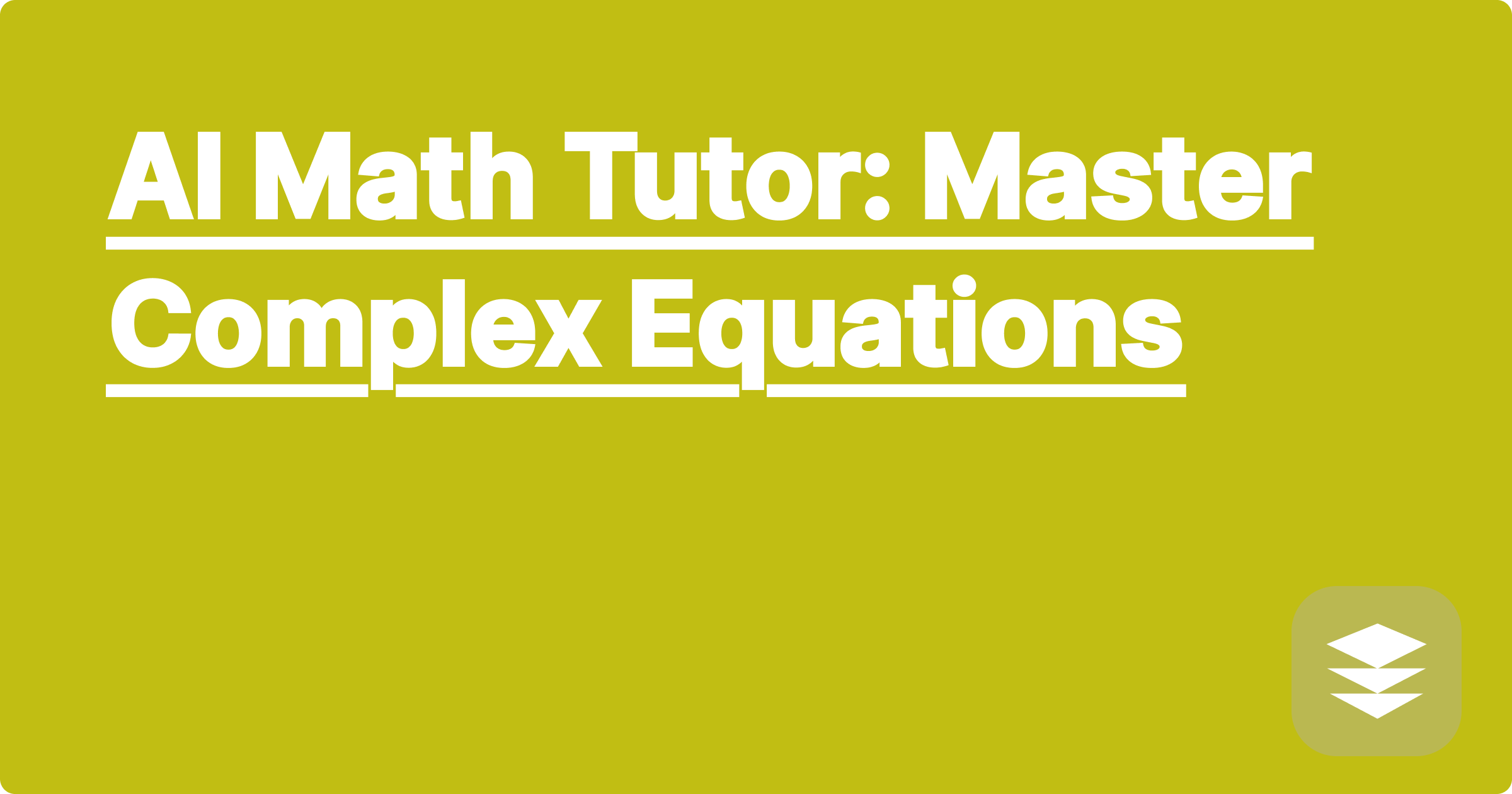
The world of STEM is built on complex equations, intricate models, and vast datasets. For students and researchers navigating this challenging landscape, keeping up with the demands of coursework, research projects, and data analysis can feel overwhelming. Imagine spending hours wrestling with a particularly stubborn equation or sifting through mountains of data, feeling like you’re barely scratching the surface. This struggle is all too common, but thankfully, the rise of Artificial Intelligence (AI) offers powerful new tools to transform how we approach STEM learning and research. AI-powered tools can act as virtual assistants, providing personalized tutoring, automating tedious tasks, and unlocking hidden insights within complex datasets. This blog post will explore how AI can empower STEM students and researchers to master complex equations, boost their productivity, and ultimately achieve greater success in their academic pursuits.
This shift towards AI-powered learning and research is not just a trend; it’s a fundamental change in how we approach STEM. By embracing these tools, students and researchers can not only improve their understanding of complex concepts but also free up valuable time to focus on higher-level thinking, creative problem-solving, and innovative research design. Imagine having a virtual research assistant available 24/7, ready to assist with data analysis, literature reviews, and even the drafting of research papers. This is the potential of AI in STEM, and this post will delve into the practical strategies and tools that can make this vision a reality.
STEM fields often involve intricate mathematical concepts, requiring students to grasp complex equations, manipulate variables, and apply these principles to real-world problems. Traditional learning methods can sometimes fall short in providing the personalized support and efficient tools needed to truly master these concepts. Students may struggle with understanding the underlying logic behind equations, visualizing abstract mathematical relationships, and efficiently applying these concepts to solve problems. Furthermore, research in STEM often involves analyzing large datasets, identifying patterns, and visualizing results. This process can be time-consuming and require specialized software skills. The sheer volume of data can be overwhelming, making it difficult to extract meaningful insights and draw accurate conclusions.
AI tools like ChatGPT, Wolfram Alpha, and specialized math software offer a revolutionary approach to tackling these challenges. ChatGPT can provide personalized explanations of complex equations, breaking down concepts step-by-step and offering tailored examples. It can even generate practice problems and provide feedback on solutions, acting as a virtual tutor available at any time. Wolfram Alpha, a computational knowledge engine, excels at solving complex equations, providing step-by-step solutions, and visualizing mathematical relationships. Its ability to handle symbolic computations and generate interactive plots makes it an invaluable tool for understanding abstract concepts. Specialized math software can automate tedious calculations, perform symbolic manipulations, and generate visualizations, freeing up researchers to focus on interpreting results and drawing conclusions.
Let's take a practical example. Imagine you're struggling with a partial differential equation related to heat transfer. You can input the equation into Wolfram Alpha, which will not only provide the solution but also offer alternative forms, visualize the solution graphically, and even show related concepts. Similarly, if you’re struggling with the conceptual understanding behind a specific equation, you can ask ChatGPT to explain it in simpler terms, provide examples, or relate it to real-world applications. For data analysis, tools like Python libraries (NumPy, Pandas, Scikit-learn) combined with AI-powered visualization platforms can automate data cleaning, perform complex statistical analysis, and generate insightful visualizations. By leveraging these tools, you can streamline your workflow and focus on extracting meaningful insights from your data.
Consider a physics student trying to model the trajectory of a projectile. Using Wolfram Alpha, they can input the initial conditions and the relevant equations of motion. The tool will then calculate the projectile's path, display it graphically, and even provide information about its velocity and acceleration at different points in time. In chemistry, a researcher could use AI-powered software to analyze spectroscopic data, identify chemical compounds, and predict their properties. For a biology student studying population dynamics, AI tools can help analyze complex datasets, model population growth, and visualize the impact of different environmental factors. These examples illustrate the versatility of AI in diverse STEM fields.
To maximize the benefits of AI in your STEM studies and research, consider these strategies. First, experiment with different AI tools to find the ones that best suit your needs and learning style. Second, don't be afraid to ask specific and detailed questions when using AI tutors like ChatGPT. The more specific your query, the more targeted and helpful the response will be. Third, use AI tools to automate repetitive tasks like data cleaning and formatting, freeing up your time for more creative and analytical work. Finally, remember that AI tools are meant to augment, not replace, your own understanding. Use them as a support system, but always strive to understand the underlying principles and concepts.
Conclude by embracing AI tools as valuable partners in your STEM journey. These tools can empower you to tackle complex equations, analyze data efficiently, and gain a deeper understanding of core concepts. By integrating AI into your workflow, you can unlock your full potential and achieve greater success in your academic and research endeavors. Start exploring these tools today and discover the transformative power of AI in STEM.
AI for Chemical Analysis: Faster Results
Ace STEM Exams: AI-Powered Prep Guide
AI Math Tutor: Master Complex Equations
AI in Biology: Data Visualization Made Easy
AI Flashcards: Personalized STEM Learning
AI for Engineering: Design Optimization
AI Data Analysis: Unlocking Research Insights
AI-Powered Note Taking: Organize Smartly